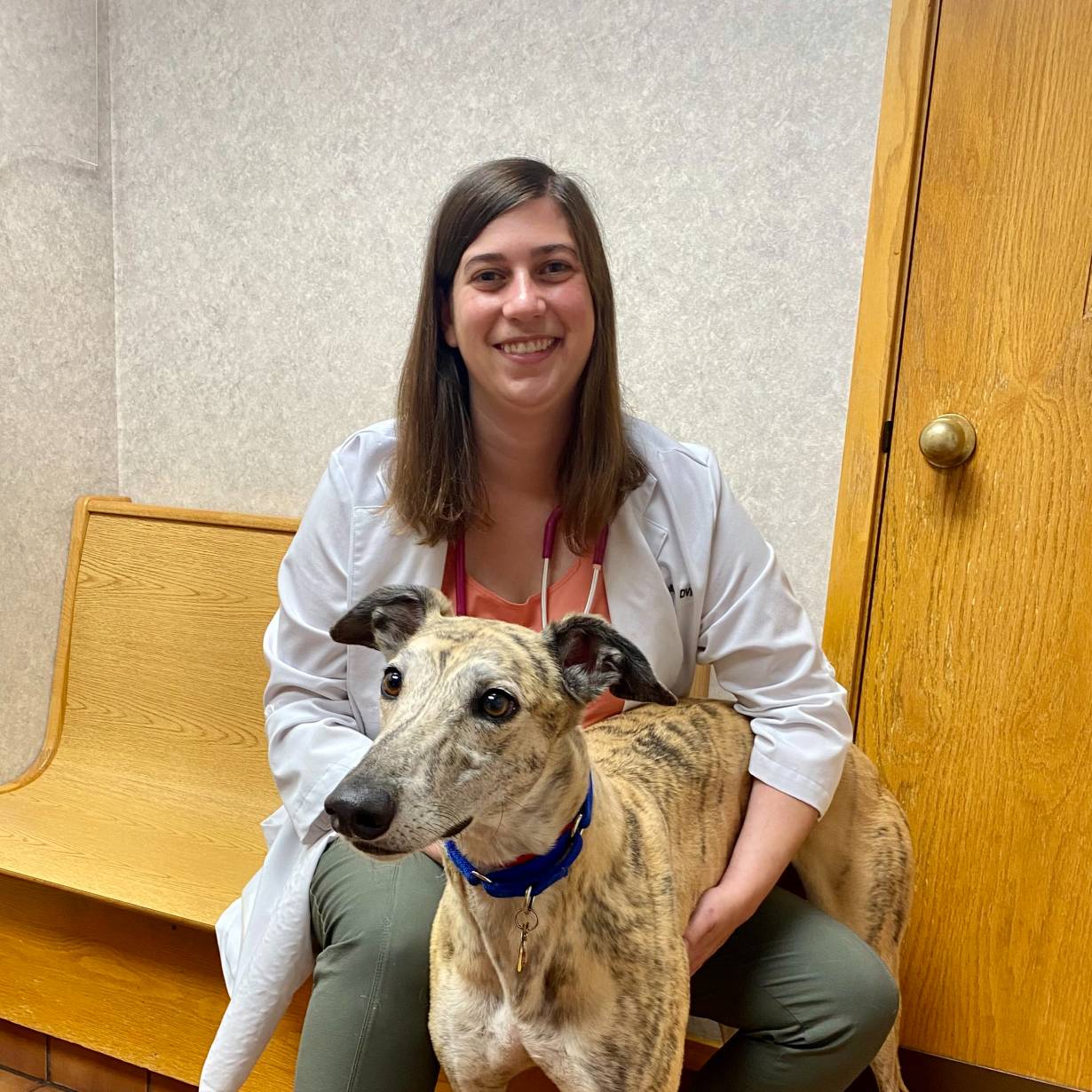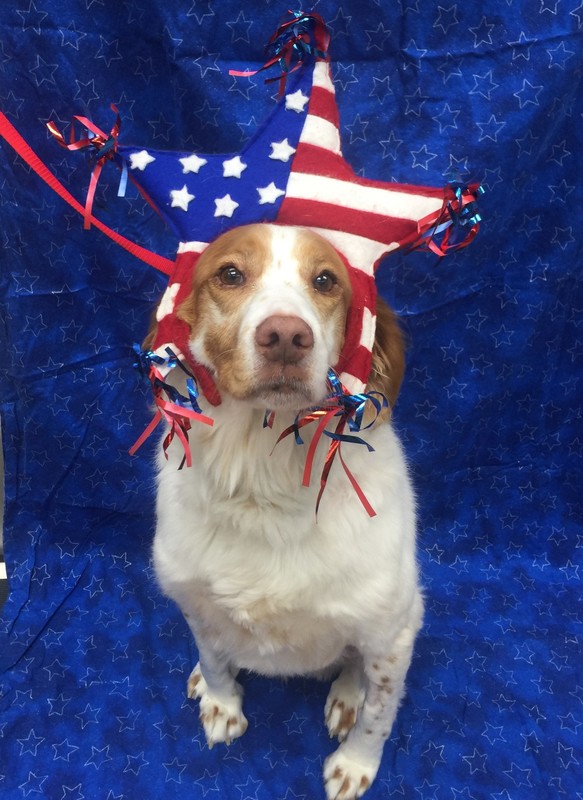
Fireworks: How to help your dog cope with noise phobia
The Fourth of July is the ultimate summer celebration, a time of cookouts, parades, and, of course, fireworks. Nothing feels more patriotic than watching the beautiful colors exploding in the sky, and for many of us, our neighborhoods turn into a cacophonous light show in the days surrounding the Fourth.
 While for us humans fireworks are a fun diversion, for our pets, they can range from a mild annoyance to the source of severe anxiety. According to Dr. Kyle Fuller of Cascade Hospital for Animals, this noise phobia induces a cortisol response in which their stress hormones elevate. This response can exhibit as “something as simple as seeking extra attention for their owner to destruction of furniture or carpeting, or chewing on the bars of their kennel,” said Dr. Fuller. “It runs a pretty wide spectrum of mild to severe symptoms.”
While for us humans fireworks are a fun diversion, for our pets, they can range from a mild annoyance to the source of severe anxiety. According to Dr. Kyle Fuller of Cascade Hospital for Animals, this noise phobia induces a cortisol response in which their stress hormones elevate. This response can exhibit as “something as simple as seeking extra attention for their owner to destruction of furniture or carpeting, or chewing on the bars of their kennel,” said Dr. Fuller. “It runs a pretty wide spectrum of mild to severe symptoms.”
Be prepared
As pet owners, we want our four-legged friends to feel safe and calm. Dr. Fuller has advice for avoiding a stressful holiday for your pets.
- Safe spaces: “The first thing I try to work on with people is to develop a safe space in their home where the pet can go and feel safe away from those scary noises,” she said. “That's usually an interior room of the house away from windows, perhaps where they can't hear the rain or hear the thunder or the fireworks.” She also recommends setting up a dog kennel as a safe space well before the fireworks begin. “Start by reinforcing the idea that this is a safe and soothing space for them,” she said. “I'll often recommend a kennel covered with a blanket. Put your dog in the kennel and give them treats and toys, making it a happy place, not necessarily just some place they go when it's thunderstorming or when there's fireworks.
- Background noise: “I encourage people to have some sort of background noise to try to drown out whatever noise the dog is afraid of,” she said. “That can be soothing music. There's actually music that's made for dogs. It's called Through a Dog's Ear. And there's one for cat's called Through a Cat's Ear. It’s classical music that’s been tested and shown to reduce the anxiety levels in dogs and cats.” TV or radio or white noise, such as a loud fan, can help drown out the loud noises as well and distract attention from what’s going on outside.
- Fun distractions: “Teach your dog to do tricks or different things that they can do for a reward while the fireworks are happening,” said Dr. Fuller. “That way you're distracting them from it and you're causing them to have an emotional shift.” If, for example, you tell the dog to sit, you're distracting them from the noise and you're also rewarding them for being distracted from the noise.
- Encourage calmness by showing calmness: “We don't want people to snuggle with their dogs and act like the fireworks are a big deal, because the more you act like it's a big deal, the more they think it's going to be a big deal,” she said. “You can comfort them a little, but it's more important that they see that you are not upset by the noise either.” Generally speaking, ignore anxious behavior and reward calm behavior. “If your dog is pacing and panting and then happens to sit down or lay down for a brief moment, immediately reward that behavior. Give them treats, give them a high value reward when they break themself out of that cycle and exhibit calm behavior, even for just a millisecond.”
- Comfort in the air: “For milder noise phobia, we recommend a calming pheromone for dogs called Adaptil or a calming pheromone for cats called Feliway,” said Dr. Fuller. “Those are naturally calming to pets, and they come as either a room diffuser, a spray, or a collar that releases the pheromone over 30 days.”
- A wearable hug: “Another thing that people really like are ThunderShirts,” she said, “which are jackets that the dog wears that squeeze them tightly and that pressure is actually calming for them as well.”
- Get them used to it: “You can do desensitization training where you would play an audio track of fireworks at a very, very low volume while you're doing something else with the dog, while you're playing with them, while you're teaching them tricks, while you're giving them treats, and then gradually over time increase the volume of that audio track,” she said. “As you increase the volume, monitor how they’re reacting and adjust the noise level and keep working up until you get to a level where they can tolerate the noise.”
Of course, these tricks will work for many dogs, but not all. “There will always be dogs where we try all of these things and we're still not getting to the point where we can make them accept the noise of a thunderstorm or fireworks,” said Dr. Fuller. “That is the time in which I usually recommend an anxiety medication, such as Trazodone or Alprazolam, with the caveat that those medications tend to not to work well if they're given right before fireworks happen, because the dog's adrenaline response will be high already. So those work much better if you can sort of anticipate when those things are going to happen and give it about an hour beforehand.”
Finally, it’s a sobering fact that fireworks season is the time when shelters see the biggest uptick in pets that have gone missing, due to pets’ panicked reactions to the loud noise. “It’s especially important that dogs have a microchip and also a collar with their name and your phone number,” said Dr. Fuller.



